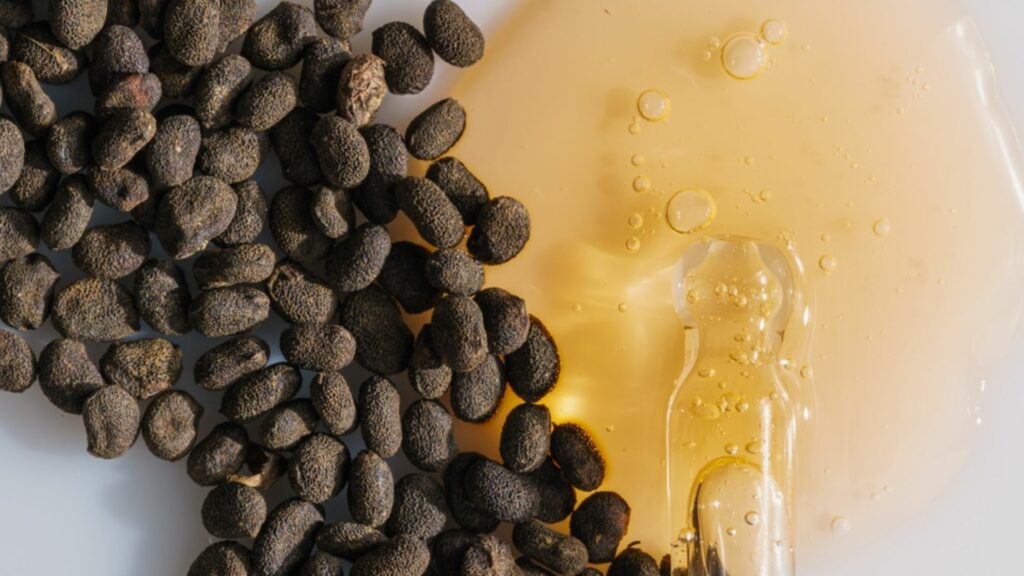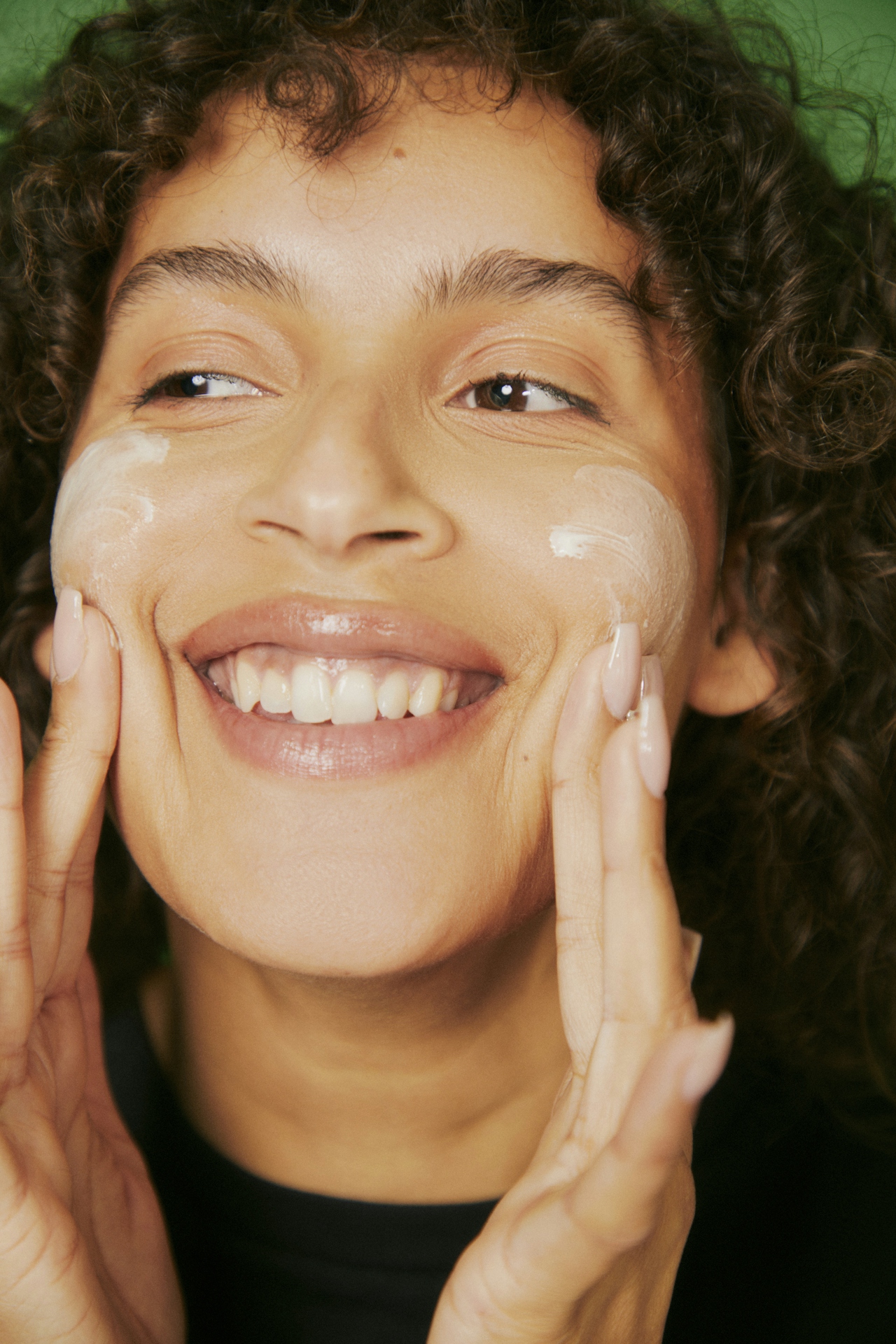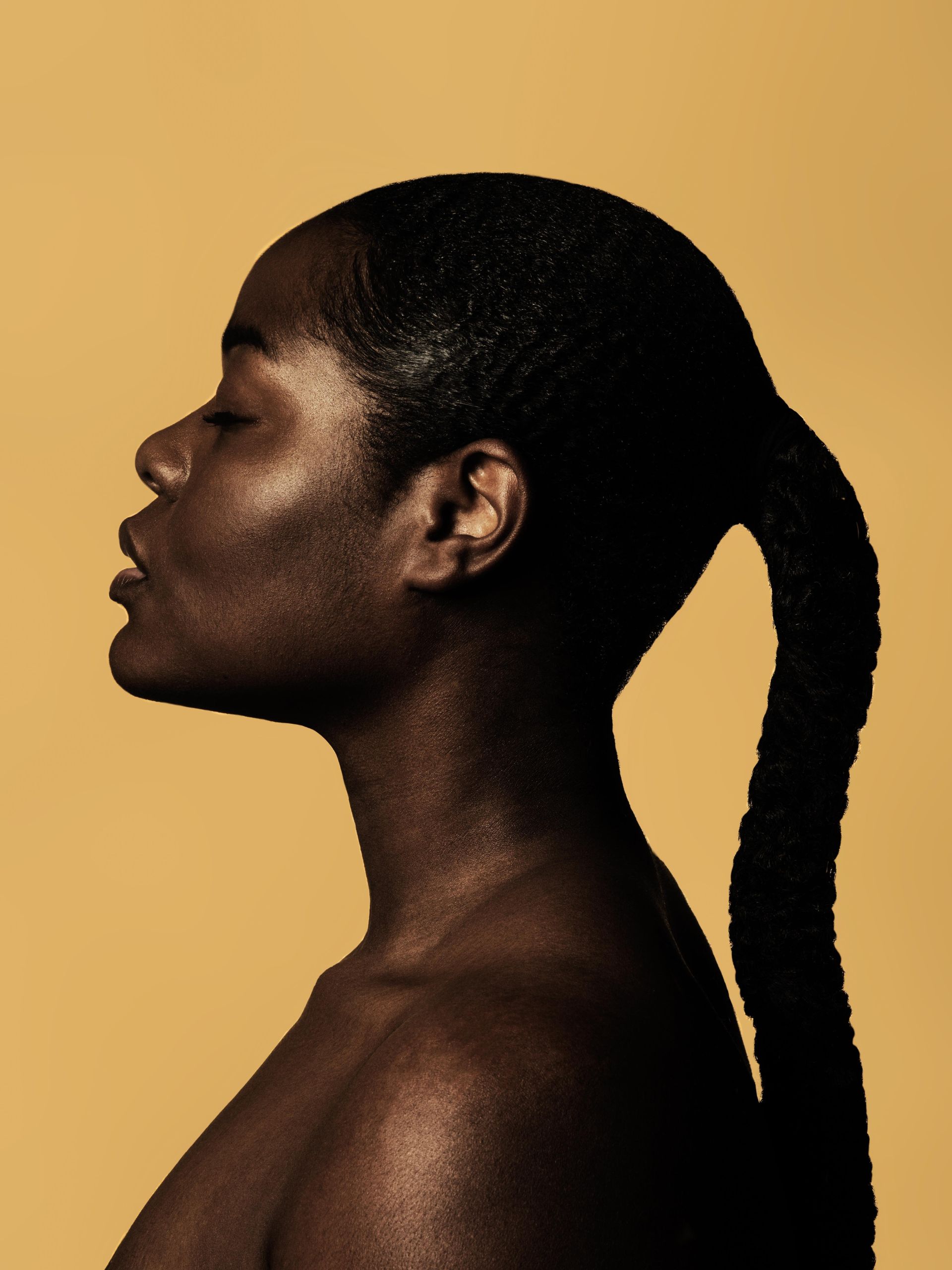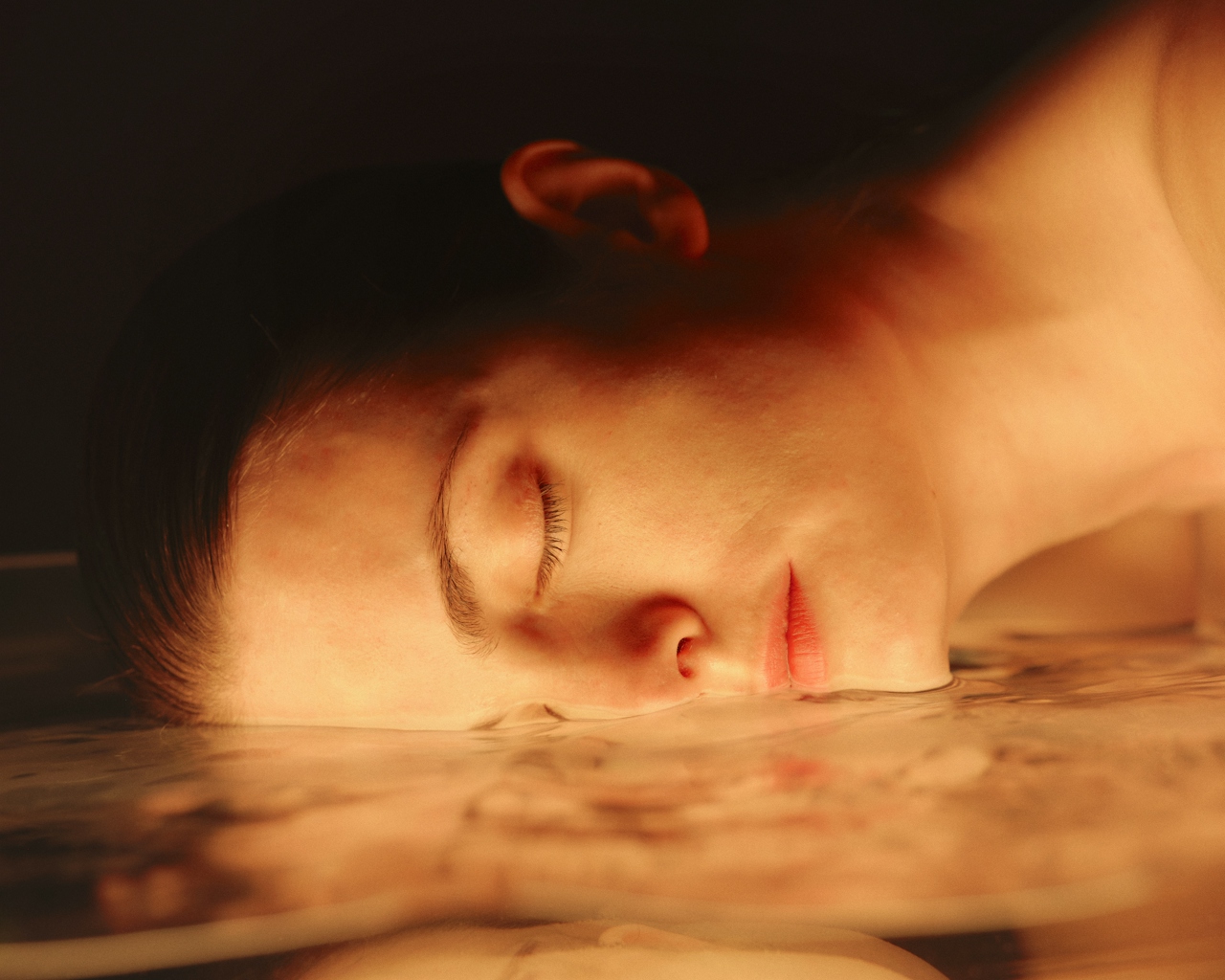
Bakuchiol has been used in traditional Ayurvedic medicine for centuries. Yet, its popularity has skyrocketed in recent years, with every brand under the sun launching its own bakuchiol serums and other products.
But does it work? As the demand for bakuchiol-infused products continues to grow, we thought it’d be help to unpack what it is, how it works, and whether it truly lives up to the hype of being a retinol alternative.
The rise of Bakuchiol in the beauty industry
The increasing interest in bakuchiol can be attributed to two main factors: accessibility and ease of use.
Firstly, the rising consumer demand for natural and sustainable skincare products has driven the search for effective alternatives to synthetic ingredients like retinol. As such, bakuchiol appeals to consumers who are prioritising natural skincare.
Secondly, the potential for bakuchiol to provide similar benefits to retinol without the associated side effects is an attractive selling point. Without the proper introduction, we know retinol can easily irritate skin. Anti-aging and skin-rejuvenating products aren’t going away anytime soon, so a ‘natural’ retinol alternative has become increasingly compelling.
Bakuchiol vs Retinol: How do they compare?
While bakuchiol and retinol share some similarities in their ability to address various skin concerns, there are also notable differences between the two ingredients:
How each works on our skin:
- Retinol is a form of vitamin A that binds to specific receptors in the skin, triggering cellular changes and stimulating collagen production.
- Bakuchiol, on the other hand, is believed to work through a different mechanism, interacting with skin cells in a way that mimics the effects of retinol without directly binding to the same receptors.
Irritation and Sensitivity:
- Retinol is known to be a more potent and potentially irritating ingredient, especially for those with sensitive skin. It can cause dryness, redness, and peeling, particularly during the initial adjustment period.
- Bakuchiol, in contrast, is generally considered a gentler, more soothing option that is less likely to cause irritation, making it a suitable choice for those with sensitive skin.
Photosensitivity:
- Retinol can increase skin’s sensitivity to sunlight, requiring diligent sun protection when using products containing this ingredient.
- Bakuchiol, on the other hand, does not appear to increase photosensitivity, allowing for more flexibility in its use.
Pregnancy and Breastfeeding:
- The use of retinol during pregnancy and breastfeeding is generally not recommended due to potential risks.
- While bakuchiol is derived from plants and is generally considered gentler, consulting a healthcare professional is still advisable before using it during pregnancy or breastfeeding.
Is Bakuchiol really worth the hype?
Yes, if it’s from the lens of being a natural alternative to retinol.
Several studies have demonstrated the ability of bakuchiol to provide many of the same benefits as retinol, such as enhanced collagen production, reduced appearance of wrinkles and fine lines, and improved skin texture. In some cases, bakuchiol has outperformed retinol in certain areas, particularly when minimizing irritation and dryness.
However, the research on bakuchiol is ongoing. Whereas, retinol has been extensively studied for its benefits. So, while bakuchiol does show promise, more studies are needed to definitively understand its long-term effects and any limitations it might have. Additionally, the potency and concentration of bakuchiol in various skincare products can vary, which may impact its overall efficacy.
Ultimately, whether bakuchiol is worth the hype will depend on your specific skin type, concerns, and personal preferences. For some, the promise of a natural, gentler alternative to retinol may be a game-changer, while others may find that bakuchiol doesn’t quite deliver the same level of results as their tried-and-true retinol products.
Does Bakuchiol really work? The science behind its effectiveness
The scientific research on bakuchiol’s efficacy is growing, and multiple studies and research articles have shed light on the mechanisms behind its potential benefits:
- Antioxidant Properties: Bakuchiol acts like a superhero for your skin! It contains antioxidants that fight off free radicals and environmental damage, helping to keep your skin cells healthy.
- Collagen Stimulation: Bakuchiol has been found to stimulate collagen production, a crucial structural protein that helps maintain skin’s firmness and elasticity.
- Anti-Inflammatory Effects: Bakuchiol has demonstrated anti-inflammatory properties, which may help address skin concerns like acne, redness, and irritation.
- Cell Turnover and Renewal: Bakuchiol has been shown to enhance cell turnover and renewal, leading to improved skin texture and a more even, radiant complexion.
- Photostability: Unlike retinol, which can be degraded by exposure to UV light, bakuchiol has been found to be more photostable, making it a potentially more suitable option for daytime use.
Picking the perfect Bakuchiol for your skin type
Not all bakuchiol products are created equal! To find your perfect match, consider your skin type and concerns:
Dry or Sensitive Skin
- Look for bakuchiol products containing hydrating and soothing ingredients, such as glycerin, ceramides, and botanical extracts.
- Opt for lower concentrations of bakuchiol, as higher levels may still irritate sensitive skin types.
Oily or Acne-Prone Skin
- If you have oily or acne-prone skin, look for bakuchiol products that are oil-free and non-comedogenic. This means they won’t clog your pores and worsen breakouts.
- Consider bakuchiol formulations that also contain tea tree oil or salicylic acid to address acne-related concerns.
Mature or Aging Skin
- Prioritize bakuchiol products that are formulated with additional anti-aging ingredients, such as vitamin C, peptides, or hyaluronic acid, to target multiple signs of aging.
- Higher concentrations of bakuchiol may be more suitable for this skin type, as the skin is often more resilient.
Combination Skin
- Look for bakuchiol products that are versatile and can address both the dry and oily areas of your skin.
- Consider using a bakuchiol serum or treatment, followed by a moisturizer tailored to your specific skin needs.
Regardless of your skin type, it’s essential to start with a patch test and gradually introduce bakuchiol into your routine to ensure your skin can tolerate the ingredient. With the right bakuchiol-infused products, you can potentially experience the benefits without compromising your skin’s health and comfort.
Frequently Asked Questions
What does bakuchiol do to skin?
Bakuchiol helps address signs of aging like wrinkles and fine lines. It can also even skin tone by reducing hyperpigmentation. Additionally, bakuchiol offers calming properties to soothe the skin.
Is bakuchiol better than retinol?
Bakuchiol may be a gentler alternative to retinol, especially for sensitive skin. Retinol is generally considered more potent for tackling wrinkles.
Is it safe to use bakuchiol everyday?
While generally considered safe for daily use, it’s always recommended to do a patch test first to check for any irritation.
What is another name for bakuchiol?
Bakuchiol doesn’t have a widely used nickname or synonym.
What to avoid when using bakuchiol?
Limit sun exposure or use sunscreen after applying bakuchiol, as it can increase sun sensitivity. Avoid using harsh skincare products or over-exfoliating while using bakuchiol, as it can potentially irritate the skin.
The Bottom Line
As a natural alternative to retinol, bakuchiol can offer similar anti-ageing benefits but with a gentler approach that is less likely to cause irritation or sensitivity.
The scientific research supporting the efficacy of bakuchiol is growing, and the potential advantages it offers, such as improved collagen production, reduced inflammation, and enhanced cell turnover, are compelling. Bakuchiol results can vary, and research is still ongoing to understand its long-term effects fully.
Ultimately, the decision to use bakuchiol as a retinol alternative is yours! Weigh your unique skin needs, preferences, and what the current research tells us about this ingredient, along with any potential drawbacks, to make an informed decision.



